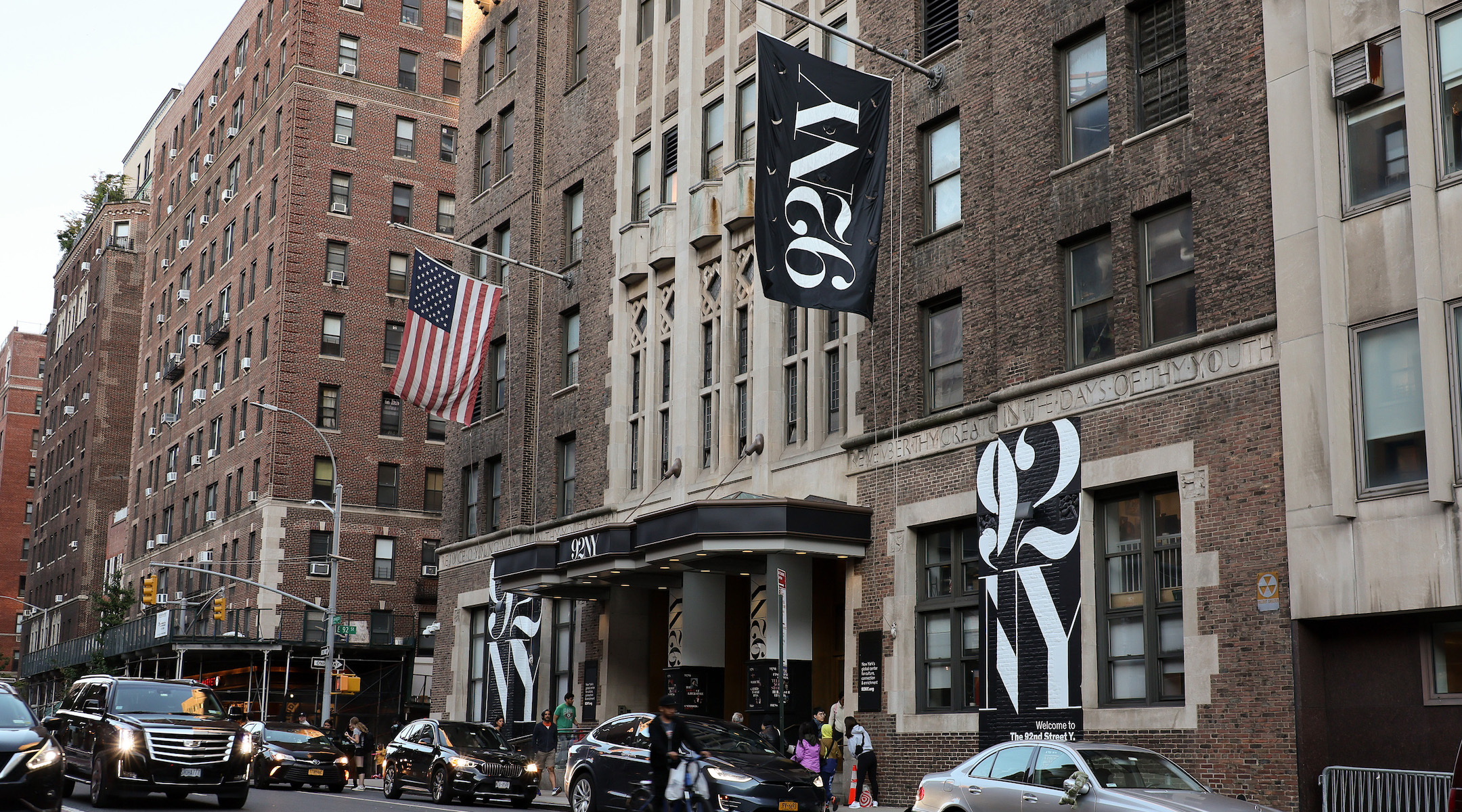(New York Jewish Week) — Every Jewish community worth its salt has a Jewish community center, but few have had the cultural impact of New York’s 92nd Street Y.
Founded in 1874 as the Young Men’s Hebrew Association, 92NY has become a major metropolitan showcase for the best in dance, poetry, classical music, jazz and celebrity lectures — and, starting with the pandemic, a global venue for classes and talks.
The Jewish cultural institution is celebrating its 150th birthday this year.
“The Y is started as essentially a conversation between a group of German Jewish businessmen and professionals in the home of Dr. Simeon Newton Leo,” 92NY’s archivist, Caitlin Biggers, told the New York Jewish Week. “They got together and looked to serve the social, spiritual and intellectual needs of New York’s Jewish American community, which at that time was largely German.”
The original location at 112 West 21st St. included social rooms, a reading room and a gymnasium. The institution moved several times before landing at its current location on 92nd St and Lexington Avenue in 1900. (In 2022, after a rebranding, the “The 92nd Street Y” became “The 92nd Street Y, New York” — 92NY for short.)
These days, 92NY still boasts many of the same original offerings — though the gymnasium is now a 50,000-square-foot fitness center — along with much more: there’s a poetry center, dance center, ceramics studio, theater and summer camps. A spot in its pre-school is nearly as coveted — and as competitive — as an Ivy League education.
Though perhaps best known as an uptown venue to catch world-class artists, writers and speakers, 92NY is also one of the largest centers of Jewish cultural and spiritual life in the city. The Bronfman Center for Jewish Life hosts a leadership fellowship, Jewish text study sessions and an after-school program.
“Since our founding, central to our mission has been the development and implementation of programming that directly meets the needs of Jews, here in New York and around the world,” Seth Pinsky, the organization’s chief executive officer, told the New York Jewish Week.
“At a moment of rising antisemitism, when so much that is negative is being said about Jews, we view this aspect of our work to be particularly important for the Jewish community,” Pinsky said. “It makes the case every day that our core Jewish values can and do positively impact people of all backgrounds and beliefs.”
In honor of the institution’s sesquicentennial, here are some of the most historic and important moments from 92NY’s history.
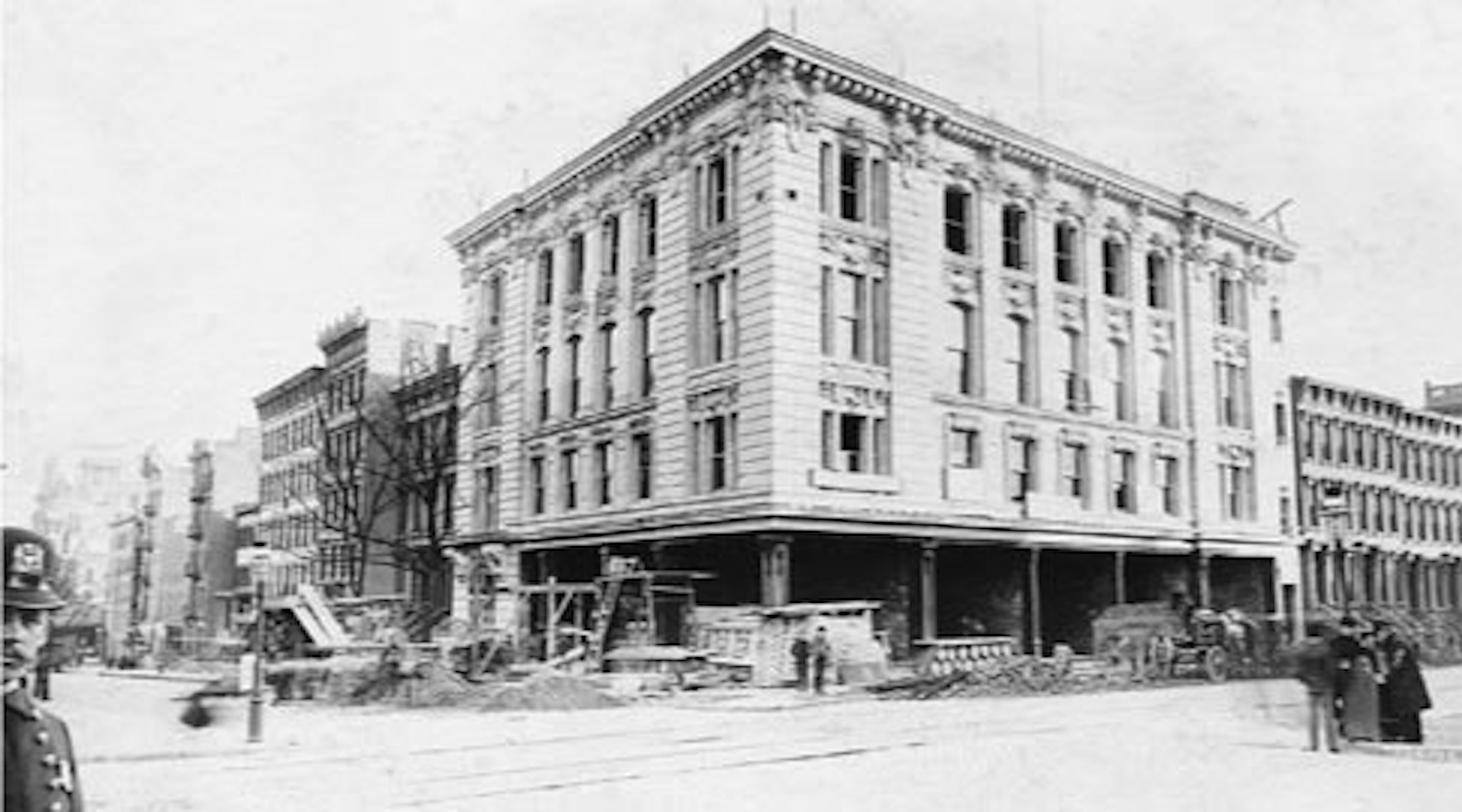
92NY moved to its current location at 92nd St and Lexington Avenue in 1900, above. Today’s building was constructed at the same location in 1930. (Courtesy 92NY)
1. 1883 — Emma Lazarus teaches English to new Jewish immigrants
Just a few years after its founding, the Sephardic Jewish poet and author Emma Lazarus was employed by the Y to teach English to Jewish refugees from Eastern Europe. It was during this period that she wrote her iconic poem, “The New Colossus,” to raise money for the construction of the pedestal for the Statue of Liberty. Her famous words “Give me your tired, your poor, / Your huddled masses yearning to breathe free” are engraved in a plaque on the pedestal.
2. Feb. 7, 1941 — Tony Curtis makes his acting debut
Before he became an American heartthrob, Tony Curtis was Bernard Schwartz, the Harlem-born son of Hungarian-Jewish immigrants. Growing up, he was an active member in 92NY’s athletics and club, and in 1941 he made his acting debut at the Y’s theater production of “Thunder Rock.” Just seven years later, he signed with Universal Pictures, changed his name to Tony Curtis and went on to star in blockbusters like “Some Like It Hot,” “The Sweet Smell of Success” and “The Defiant Ones,” which earned him an Academy Award nomination.
3. April 21, 1948 — Harry Belafonte acts in “Sojourner Truth”
Harlem-born actor and singer Harry Belafonte made his off-Broadway debut at 92NY in “Sojourner Truth,” a play with the American Negro Theatre based on the life of the Black abolitionist. As he later recalled in his memoir “My Song: A Memoir of Art, Race, and Defiance,” the play earned Belafonte his first critical praise in a column written by First Lady Eleanor Roosevelt, who had attended the performance. Belafonte went on to become a civil rights leader and returned to 92NY several more times throughout his career, including to launch the 1955-1956 Junior Entertainment Series, where he performed folk songs especially for children.
4. Feb. 2, 1955 — Arthur Miller reads “Death of a Salesman”
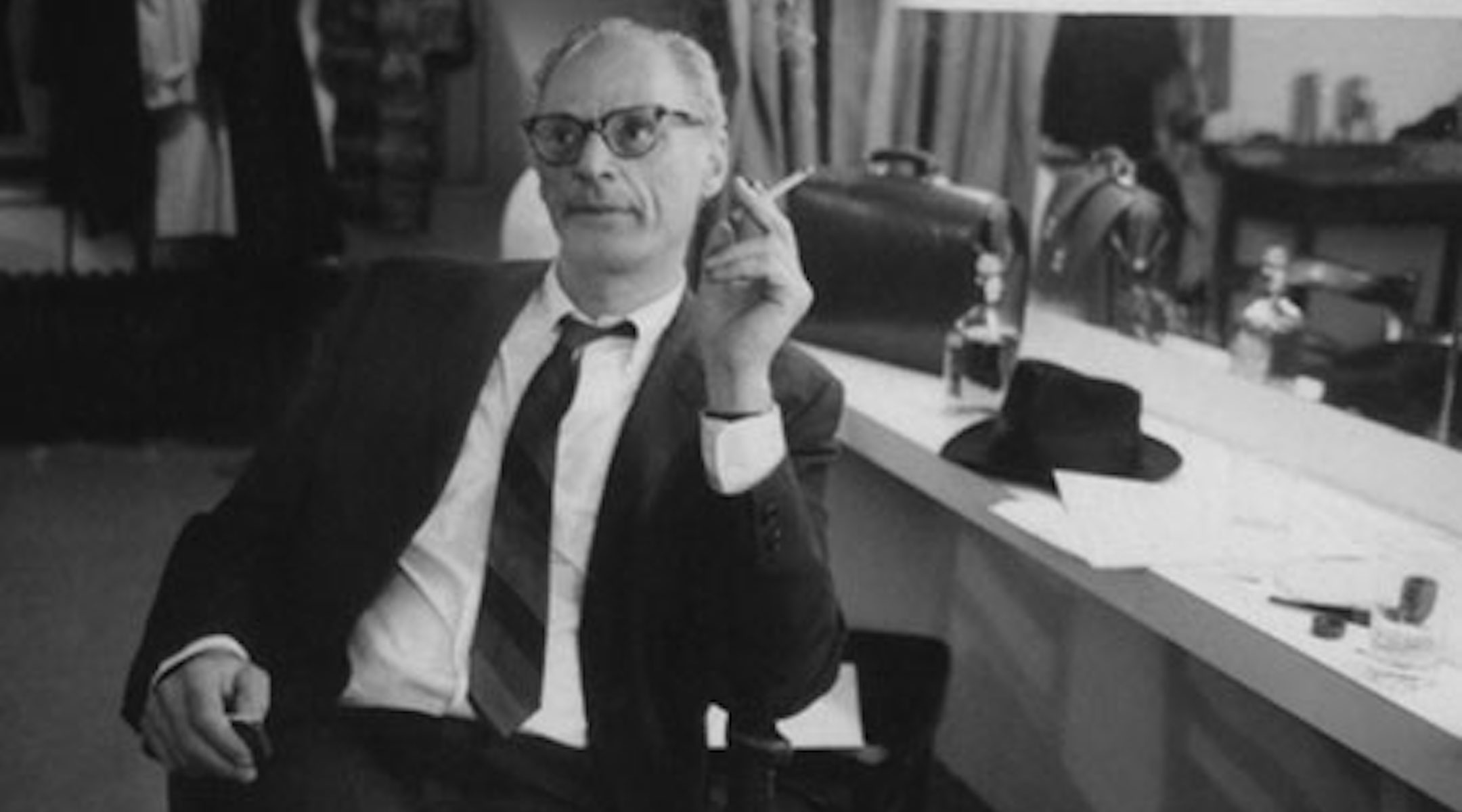
The Jewish playwright Arthur Miller smokes in 92NY’s greenroom before his reading of “Death of a Salesman” in 1955. (Courtesy 92NY)
Arthur Miller — who was born to a Polish-Jewish family in Harlem in 1915 — read excerpts of his play ”Death of a Salesman” on the 92NY stage, alongside actress Mildred Dunnock, who played Linda Loman in the original Broadway production. “Death of a Salesman” won the Pulitzer Prize for Drama and the Tony Award for Best Play in 1949.
5. Jan. 31, 1960 — Alvin Ailey debuts “Revelations”

Alvin Ailey debuted his landmark choreography at 92NY in 1960. (Courtesy 92NY)
Pathbreaking choreographer Alvin Ailey premiered his landmark production “Revelations” at 92NY when he was just 29 years old. The three-act dance, set to African-American spirituals and depicting a story of the African-American journey from slavery to freedom, became Ailey’s signature work. Ailey was inspired by the modern dance techniques of Martha Graham, who began honing the style in performances at 92NY in the late 1930s.
6. Nov. 5, 1960 — Joan Baez makes her NYC debut
Contemporary folk singer and social justice activist Joan Baez was just breaking out when she made her New York City debut at 92NY in November 1960 at only 19 years old. Later that month, she released her first album, “Joan Baez,” with Vanguard Recording Society. Though Baez was not Jewish, one of her most popular songs from that album was “Donna Donna,” an English-language translation of the Yiddish folksong “Dos Kelbl” (“The Calf”), written by Sholom Sekunda and Aaron Zeitlin in the early 1940s.
7. Dec. 6, 1964 — Truman Capote debuts “In Cold Blood”
Truman Capote debuted his newest work of creative nonfiction at 92NY: “In Cold Blood,” a pioneering true crime novel that details the 1959 murders of the Clutter family in Kansas. The scene of Capote reading the book on the 92NY stage was reenacted in the 2005 Academy Award-winning film “Capote” starring Philip Seymour Hoffman — who himself did read and lectured at 92NY in 2006 and 2010.
8. Feb. 14, 1966 — Leonard Cohen sings “The Stranger Song”
The legendary Jewish writer and singer Leonard Cohen read his poetry at 92NY, and gave his first public performance of “The Stranger Song,” a poetic folk song about an enigmatic relationship between two people. Cohen would go on to perform the song for his TV debut on Canada’s CBC later that year.
9. Feb. 1967 — Elie Wiesel’s first reading at 92NY
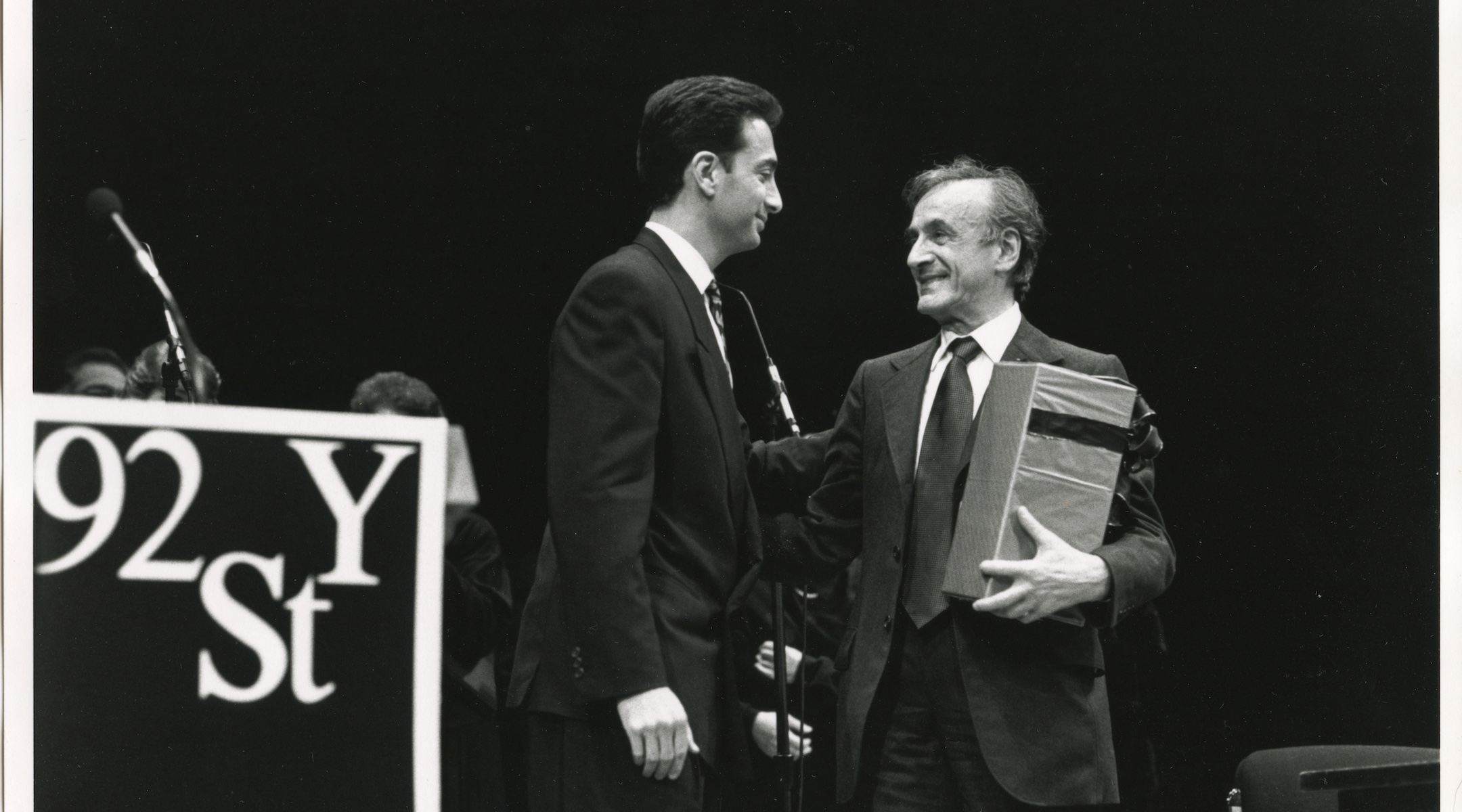
Matthew Bronfman and Elie Wiesel onstage at 92NY in November 1996. (Courtesy 92NY)
Holocaust survivor and Nobel Prize winner Elie Wiesel made his first appearance at 92NY to read from his 1966 novel, “The Town Beyond the Wall,” about a concentration camp survivor who makes a difficult journey to his birth town in Hungary in the Communist era. Wiesel went on to become a frequent speaker at 92NY, and lectured more than 180 times over nearly 50 years on subjects as varied as the Talmud, Hasidism and the Holocaust. His lectures are preserved in 92NY’s Elie Wiesel Living Archive.
10. 1979 — 92NY opens the nation’s first parenting center
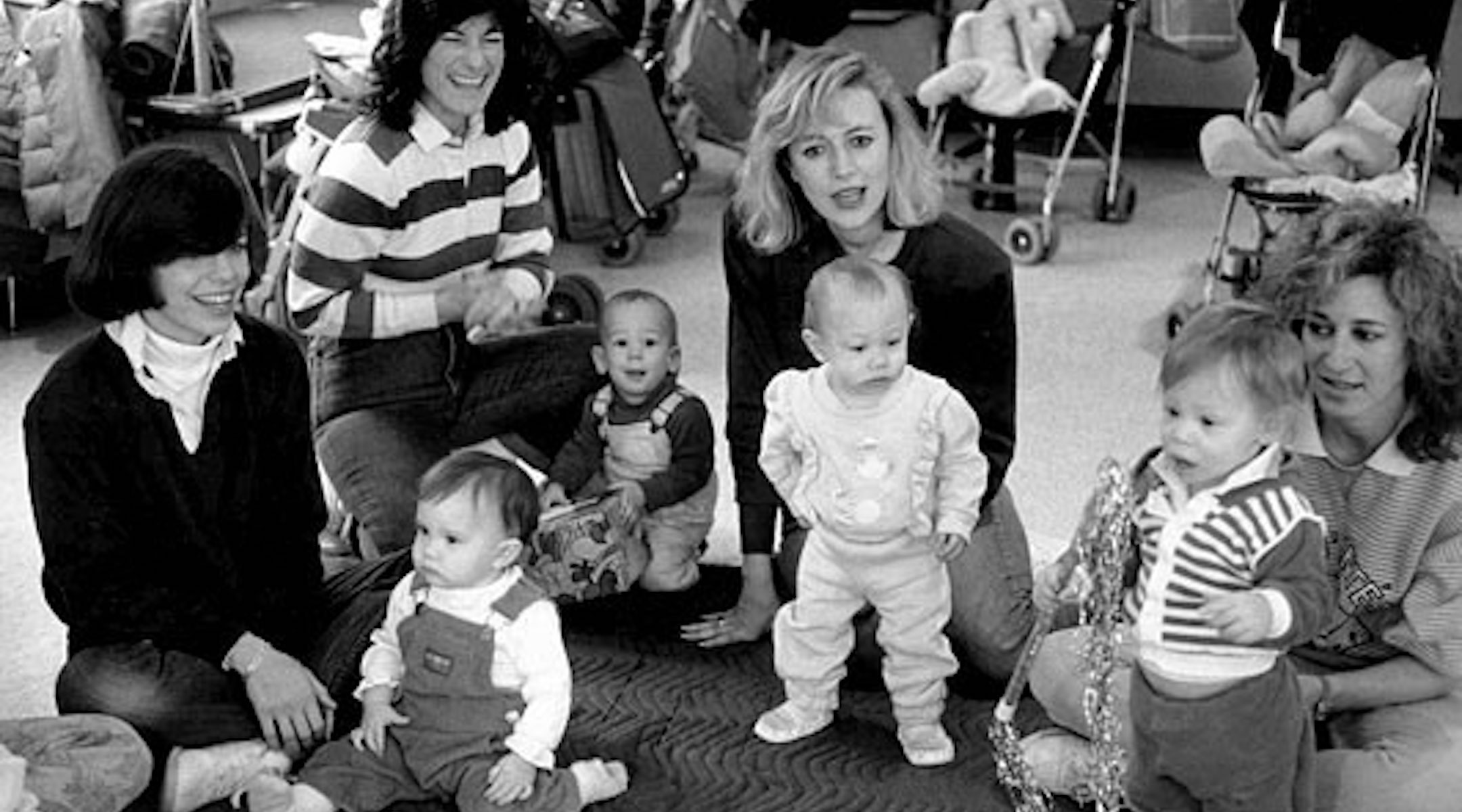
The nation’s first parenting center opened at 92NY in 1979. (Courtesy 92NY)
92NY opens the first-ever parenting center in the country, providing expert advice and a nurturing environment for new parents and young families. Now called the 92NY Lipschultz Parenting Center, the center offers prenatal classes, baby CPR and First Aid classes, parenting classes with a focus on Jewish values and activities and events for infants, babies and toddlers.
11. Jan. 11, 1988 — Maya Angelou meets with NYC public school students
Writer and civil rights activist Maya Angelou met with New York City public school students, inaugurating a poetry center outreach program that now reaches 1,000 students every year. Since Angelou’s appearance, the program has drawn the participation of many celebrated authors, including Salman Rushdie, Patti Smith, Jamaica Kincaid, Tony Kushner, Adrienne Rich, Zadie Smith, David Mitchell and E. L. Doctorow.
12. Nov. 27, 2012 — GivingTuesday launches at 92NY
“Giving Tuesday,” the annual day of charitable giving that takes place the Tuesday after Thanksgiving, was founded at 92NY in response to Black Friday and Cyber Monday shopping sprees. The nonprofit organization that coordinates the campaign, also called GivingTuesday, was housed in 92NY’s Belfer Center for Innovation & Social Impact until 2019, when it became its own independent 501(c)(3).
13. May 8, 2014 — Philip Roth gives his last public reading
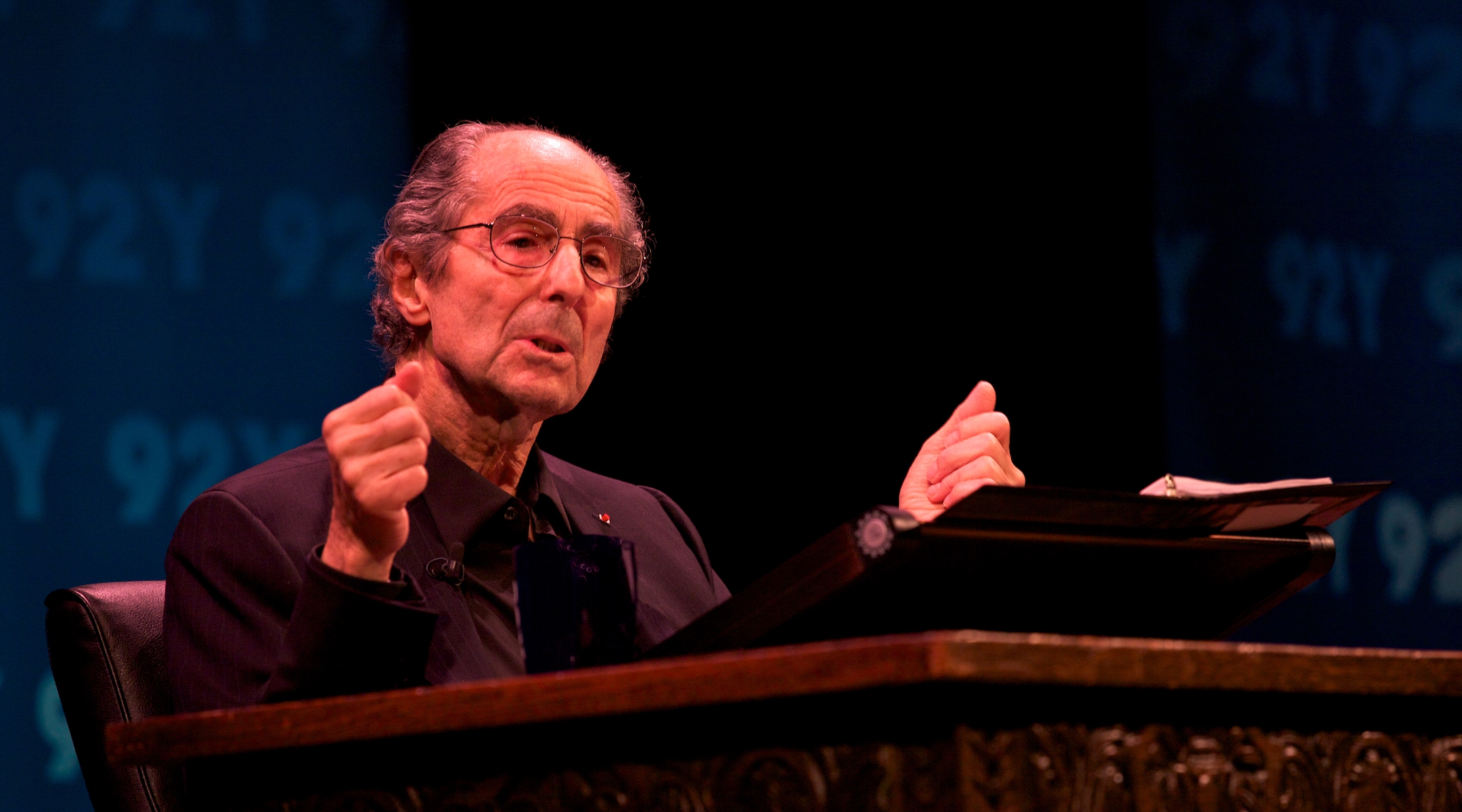
Philip Roth reading from “Sabbath’s Theater” on stage at 92NY in 2014 (Nancy Crampton)
The prolific, neurotic and occasionally obscene American-Jewish writer Philip Roth gave his last public reading at 92NY, reading an excerpt from his 1995 novel “Sabbath’s Theater,” which won the National Book Award for Fiction.
14. May 2022 – The 92nd Street Y rebrands with a new name and new logo
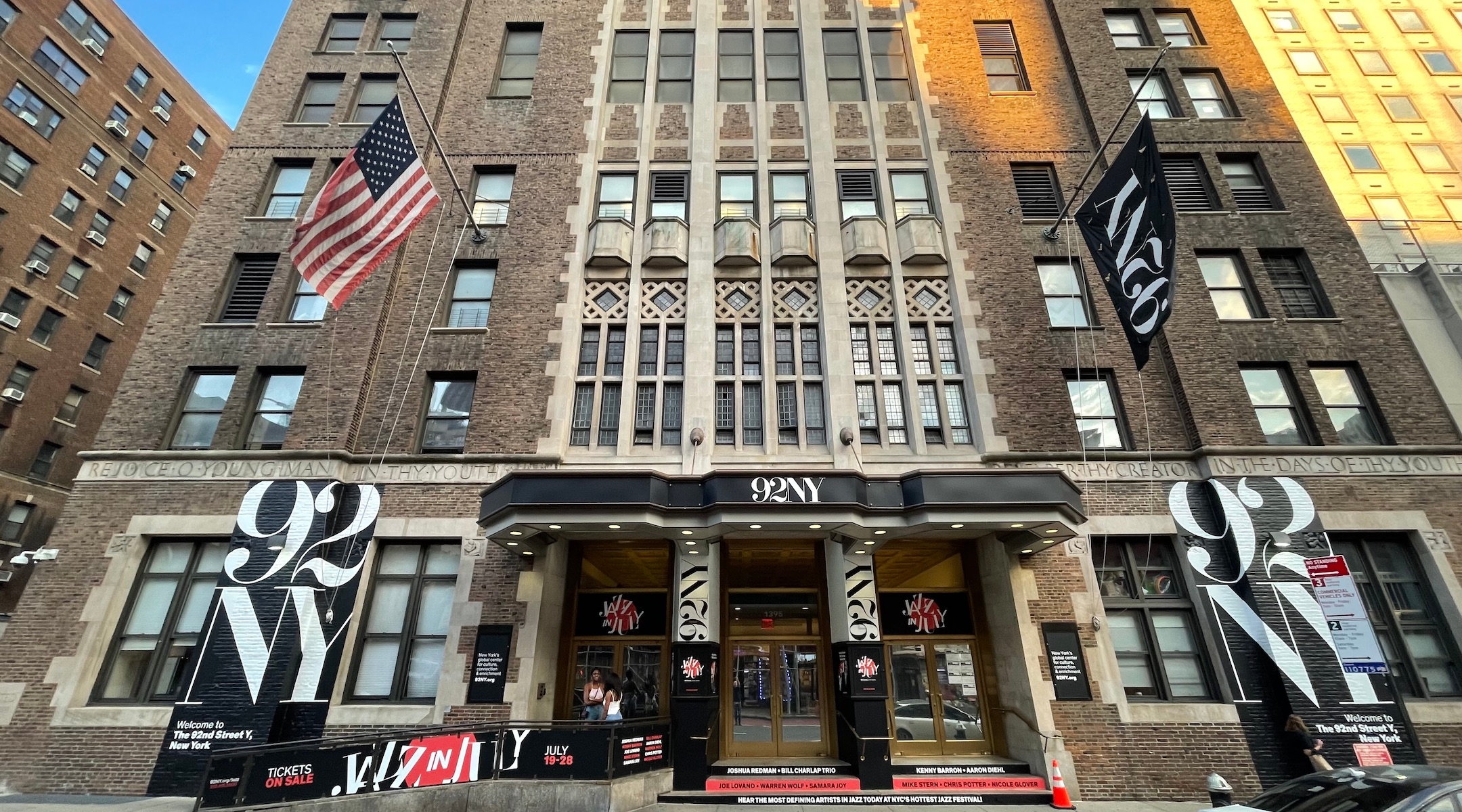
A view outside 92NY on July 25, 2022 in New York City. (Noam Galai/Getty Images)
In May 2022, The 92nd Street Y officially changed its name to The 92nd Street Y, New York, or simply 92NY, re-establishing its identity as a New York City-centric cultural and educational bastion. The institution invested in a $200 million renovation of its facilities and developed Roundtable, a forum for online programming that emerged during the COVID-19 pandemic.
“Almost everything that we do is at a certain level Jewish because it’s animated by our Jewish values. And those Jewish values include an understanding of the importance of belief in education, a belief in discussion and debate, civil discourse, a belief that the world can be improved and that it’s our job to try to do that,” CEO Pinsky told JTA in 2022. “One way or another, just as we’re an institution that could only exist in a city like New York, we’re also an institution that could only have been founded by a people like the Jewish people.”
The New York Jewish Week brings you the stories behind the headlines, keeping you connected to Jewish life in New York. Help sustain the reporting you trust by donating today.
